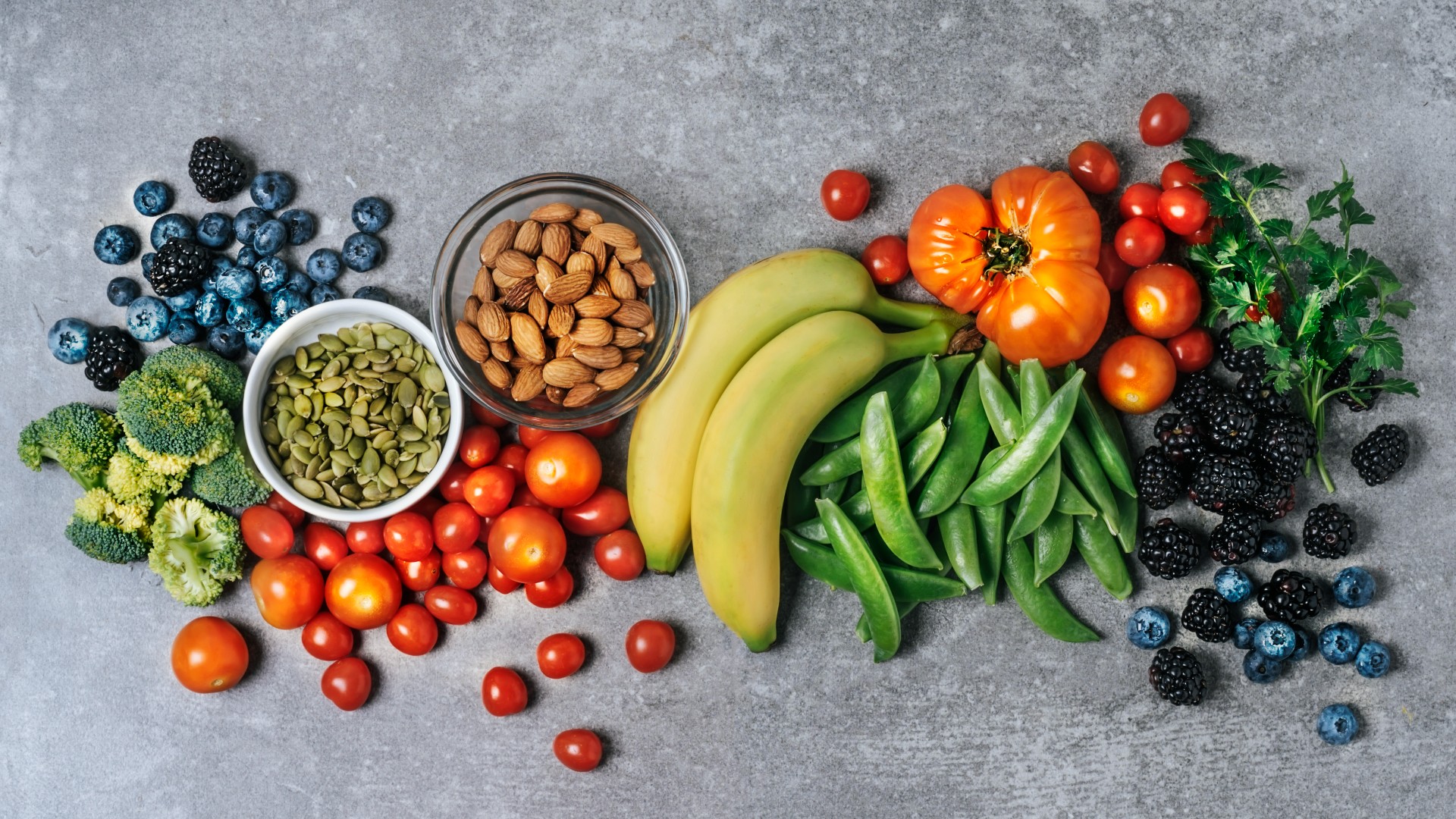Maintaining good eye health is essential for overall well-being, and green vegetables play a significant role in protecting our vision. Packed with an array of beneficial nutrients and antioxidants, green vegetables like spinach, kale, and broccoli offer numerous advantages for eye health. From shielding the eyes against harmful free radicals to reducing the risk of age-related macular degeneration and cataracts, these vibrant leafy greens provide a natural and delicious way to promote optimal eye health.
1, Rich in Antioxidants.
Green vegetables like spinach, kale, broccoli, and Brussels sprouts are indeed rich in antioxidants, including lutein and zeaxanthin. These antioxidants play a vital role in maintaining eye health and protecting the eyes from damage caused by free radicals and oxidative stress.Lutein and zeaxanthin are carotenoids, which are pigments found in many fruits and vegetables. They are particularly concentrated in the macula of the eye, a part of the retina responsible for central vision. These antioxidants act as natural filters of harmful blue light and help neutralize free radicals, which can cause cellular damage. Age-related macular degeneration (AMD) and cataracts are two common eye conditions that can affect vision as we age. AMD is characterized by the deterioration of the macula, leading to loss of central vision, while cataracts involve the clouding of the eye's lens. Both conditions have been linked to oxidative stress and damage caused by free radicals. By consuming green vegetables rich in lutein and zeaxanthin, you can help protect your eyes from these age-related eye conditions. Incorporating these vegetables into your diet can provide a range of nutrients, including vitamins A, C, and E, which further support eye health. It's important to note that while a diet rich in antioxidants is beneficial for eye health, it should be part of an overall balanced and varied diet. Regular eye exams and maintaining a healthy lifestyle, including not smoking, wearing sunglasses to protect against harmful UV rays, and managing chronic conditions like diabetes, also contribute to maintaining good eye health.
2, Macular Protection.
Lutein and zeaxanthin, which are present in green leafy vegetables, have a specific affinity for accumulating in the macula of the eye. The macula is responsible for central vision and helps us see fine details. These antioxidants serve as a natural protection for the macula and offer several benefits for eye health. One important role of lutein and zeaxanthin is their ability to act as a natural sunblock for the macula. They have the capability to filter out harmful blue light from the visible light spectrum, which can potentially cause damage to the retina. Blue light is emitted by various sources such as the sun, digital screens, and artificial lighting. By absorbing and neutralizing blue light, lutein and zeaxanthin help reduce the risk of oxidative damage to the macula and the retinal cells.Additionally, these antioxidants also provide protection against ultraviolet (UV) radiation. UV rays, particularly the UV-A and UV-B rays, are known to contribute to eye conditions such as cataracts and age-related macular degeneration (AMD). Lutein and zeaxanthin help in minimizing the impact of UV radiation on the macula, thereby reducing the risk of these conditions. By consuming green leafy vegetables rich in lutein and zeaxanthin, you can increase the levels of these antioxidants in your body and support the health of your macula. Other dietary sources of these antioxidants include corn, egg yolks, and orange and yellow fruits and vegetables. It's worth noting that while lutein and zeaxanthin are beneficial for eye health, they are not the only nutrients that contribute to overall eye health. A well-balanced diet, regular eye check-ups, protecting your eyes from excessive UV exposure, and adopting healthy lifestyle habits all play a crucial role in maintaining good vision and eye health.
3, Nutrient Powerhouses.
Green vegetables are indeed nutrient powerhouses and provide a range of essential nutrients that support overall eye health. Vitamin A: Green vegetables such as spinach, kale, and broccoli are excellent sources of vitamin A. This vitamin is essential for good vision as it plays a crucial role in the formation and maintenance of healthy retinal cells. It is also a component of rhodopsin, a pigment found in the retina that is involved in low-light and night vision.Vitamin C: Green vegetables like broccoli and Brussels sprouts are rich in vitamin C. This vitamin is known for its antioxidant properties, which help protect the eyes against oxidative stress. Vitamin C also supports the health of blood vessels in the eyes and is important for the absorption of iron, which is necessary for transporting oxygen to the eyes. Vitamin E: Spinach and broccoli are good sources of vitamin E. This vitamin is another powerful antioxidant that helps protect the cells of the eyes from damage caused by free radicals. It also supports the health of blood vessels and may reduce the risk of certain eye conditions. Zinc: Green vegetables, particularly spinach, are a good source of zinc. Zinc is a mineral that is essential for the proper functioning of enzymes in the eyes and plays a role in the metabolism of vitamin A. Adequate zinc intake is important for maintaining good vision. Selenium: Some green vegetables, such as broccoli, contain selenium. Selenium is a trace mineral that also acts as an antioxidant and helps protect the eyes from oxidative damage. It works in conjunction with other antioxidants to support overall eye health. Incorporating a variety of green vegetables into your diet can provide these important nutrients that are beneficial for eye health. Remember to combine them with other colorful fruits and vegetables to obtain a wide range of nutrients necessary for overall well-being.
4, Improved Blood Circulation.
Green vegetables, due to their high content of nitrates, can contribute to improved blood circulation, including to the small blood vessels in the eyes. Adequate blood flow is essential for delivering oxygen and essential nutrients to the eyes, supporting optimal eye function and reducing the risk of certain eye diseases. Nitrates, which are naturally occurring compounds found in various vegetables, including spinach, kale, and lettuce, are converted into nitric oxide in the body. Nitric oxide helps relax and dilate blood vessels, promoting better blood flow throughout the body, including to the eyes.By enhancing blood circulation, green vegetables can support the health of the tiny blood vessels in the eyes, known as capillaries. These vessels supply oxygen and nutrients to the various structures of the eyes, including the retina and the optic nerve. Improved blood flow ensures that these structures receive an adequate supply of nutrients and oxygen, which is crucial for their proper functioning. Additionally, proper blood circulation helps remove waste products and toxins from the eyes, maintaining a healthy environment. Insufficient blood flow can contribute to various eye conditions, such as retinal ischemia (a lack of blood supply to the retina), retinopathy, and other vascular disorders that can affect vision. Incorporating green vegetables into your diet, along with other lifestyle factors such as regular exercise and maintaining a healthy weight, can contribute to improved blood flow and circulation, benefiting overall eye health. It's important to note that a balanced diet and healthy lifestyle choices should be combined with regular eye check-ups to ensure comprehensive eye care.
5, Lower Risk of Cataracts.
Regular consumption of green vegetables has been associated with a lower risk of developing cataracts. Cataracts are a common eye condition characterized by the clouding of the eye's natural lens, leading to vision impairment. Green vegetables, particularly those rich in antioxidants such as vitamins C and E, lutein, and zeaxanthin, have been found to have protective effects against cataract formation. These antioxidants help combat oxidative stress, which is a significant factor in the development of cataracts. Oxidative stress occurs when there is an imbalance between the production of free radicals and the body's ability to neutralize them with antioxidants.The antioxidants present in green vegetables help neutralize free radicals and reduce oxidative damage to the lens of the eye. By doing so, they help maintain the transparency and health of the lens, reducing the risk of cataract formation. Moreover, the anti-inflammatory properties of these antioxidants further contribute to the prevention of cataracts. Inflammation plays a role in the development and progression of cataracts, and the anti-inflammatory effects of the nutrients in green vegetables help counteract this process. In addition to antioxidants, green vegetables are rich in other beneficial nutrients like vitamins A and B, minerals such as selenium and zinc, and dietary fiber. These nutrients support overall eye health and contribute to reducing the risk of various eye conditions, including cataracts. Incorporating a variety of green vegetables into your diet, along with a well-balanced and nutritious overall eating plan, can help provide the necessary antioxidants and nutrients to support eye health and reduce the risk of cataracts. It's important to maintain a healthy lifestyle, including regular eye check-ups and protecting your eyes from excessive UV exposure, for comprehensive eye care.
Incorporating green vegetables into your diet is a smart and effective way to support and protect your vision. By harnessing the power of antioxidants like lutein and zeaxanthin, green vegetables provide crucial defense against oxidative stress and age-related eye conditions. So, make it a habit to include a variety of green vegetables in your meals, and reap the benefits of improved eye health, reduced risk of eye diseases, and clearer vision for years to come. Remember, taking care of your eyes means taking care of your overall well-being, and green vegetables are here to help you on that journey.





Comments
Post a Comment